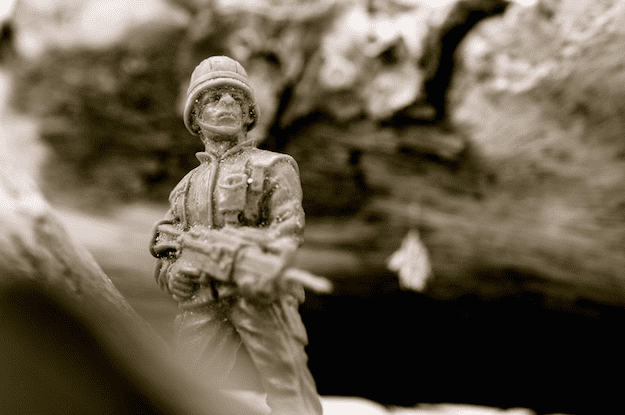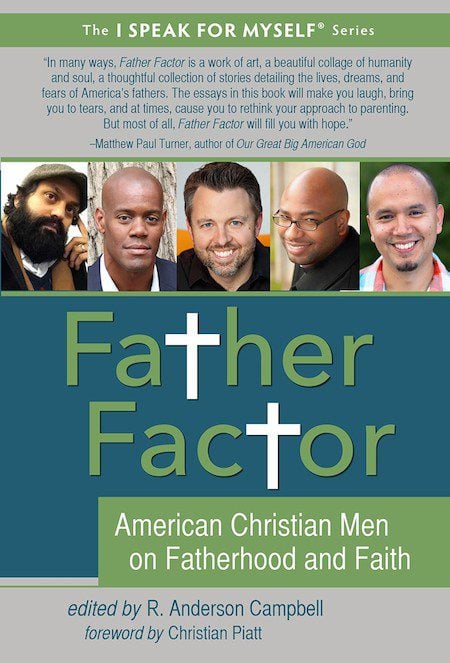
 It was the day after Christmas, 1944. In Europe, the Battle of the Bulge was in full swing. On the other side of the world Hiroo Onoda, an elite Japanese soldier and intelligence officer, was dropped behind enemy lines on Lubang Island in the Philippines. His mission was to link up with a small group of soldiers already on the island and conduct guerrilla warfare and covert operations. The departing orders from Onoda’s commander, Major Taniguchi, were clear:
It was the day after Christmas, 1944. In Europe, the Battle of the Bulge was in full swing. On the other side of the world Hiroo Onoda, an elite Japanese soldier and intelligence officer, was dropped behind enemy lines on Lubang Island in the Philippines. His mission was to link up with a small group of soldiers already on the island and conduct guerrilla warfare and covert operations. The departing orders from Onoda’s commander, Major Taniguchi, were clear:
You are absolutely forbidden to die by your own hand. It may take three years, it may take five, but whatever happens, we’ll come back for you. Until then, so long as you have one soldier, you are to continue to lead him. You may have to live on coconuts. If that’s the case, live on coconuts! Under no circumstances are you [to] give up your life voluntarily.
In February of 1945, Allied forces took the island, forcing the Japanese soldiers to split up and flee into the jungle mountains. Over the next several months most of them were killed off. But not Onoda.
Teamed with three other soldiers, Onoda continued to carry out his mission. They ate whatever they could find in the jungle or pillage from farms and villages. They plundered enemy stockpiles to refill their weapon stocks.
August 15, 1945, Japan surrendered to Allied forces ending World War II. No one ever told Onoda and his compatriots. They’d heard nothing of the destruction of Hiroshima and Nagasaki by atomic bombs. No news of the fall of Berlin had reached them. As far as they knew, the war was still on.
In October of the same year the small band of men came across a leaflet that saying, “The war ended August 15th. Come down from the mountains!” They discussed its reliability and concluded that this was most likely a piece of Allied propaganda designed to flush them out of hiding. It had been less than a year since they arrived on the island, too little time for the war to have ended, they concluded. So they carried on fighting.
Despite seeing more and more locals in civilian clothes (another sly tactic of the enemy, they reasoned) they kept fighting. They were convinced that the war was still underway because every time they fired on the “civilians,” search parties were dispatched to hunt them down. They carried on fighting.
After five years in the jungle, one of the men slipped away to surrender. Another five years later, another of the men was killed in a skirmish. Just two were left. They carried on gathering intelligence and carrying out small raids on the “enemy” for another 17 years, until in October 1972, when Onoda’s partner was killed by a Filipino patrol. Onoda was then alone.
In 1974, a college student from Japan set out to find Onoda. Japanese search parties had attempted to locate Onoda several times but had failed. Onoda was quite good at staying hidden after 29 years of guerrilla warfare in the jungles.
The Japanese college student was able to succeed where the search parties had failed. He located Onoda and did his best to persuade Onoda that the war was over and it was safe to return home. Onoda would not be moved. His orders had been clear: carry out his mission until he was either killed or until his commanding officer returned for him or ordered him otherwise.
Returning to Japan empty handed, the student looked up Major Taniguchi. He was retired and working in a book store. The student convinced Taniguchi to travel with him to the Philippines to reason with Onoda.
When they finally found Onoda again, Taniguchi told him that Japan had lost the war some 29 years earlier and it was time for him to put down his weapons and surrender. Onoda was despondent. He’d wasted 29 years of his life, killed or injured hundreds of innocent people, and labored under a delusion. But the war was over; it was time to stop fighting.
March 10, 1975, Onoda came out of the jungle in full military dress and surrendered to Philippine President Ferdinand Marcos. He was pardoned for his war crimes and allowed to return to Japan. He would later write an autobiography about his ordeal, titled No Surrender, My Thirty-Year War. Hiroo Onoda died in January, 2014 at the age of 91.[1]
Christians are not unlike Onoda. We have a knack for fighting wars that are already over. We refuse to see the signs of defeat (or victory!) all around us and keep on entering into skirmishes and all-out battles. In the midst of all this we inflict unnecessary wounds on innocent bystanders, mistaking them for hostile enemies. Often, that becomes a self-fulfilling act, creating enemies out of people who previously meant us no ill will.
Once you’ve been fighting for so long, though, it is hard to not fight anymore. You need to be discharged. Richard Rohr writes of “discharging the loyal soldier” as a critical step in transitioning from the first half of life into the second half of life.
The loyal soldier serves you well in the first half of your life. You find a sense of place, purpose, and position while your identity is forming. But nearly always, you will come to confuse the voice of the loyal soldier with the voice of God.
The loyal soldier cannot continue to carry you forward. That is why it is necessary to discharge the loyal soldier from duty. Doing so is a painful, uncomfortable, and necessary. Rohr writes, “When you first discharge your loyal soldier, it will feel like a loss of faith or loss of self. But it is only the death of the false self, and is often the very birth of the soul.”[2]
So, what wars are you fighting that are already over? The “culture” war? Worship wars? Attendance wars? Bible translation wars? Modesty wars? Funding wars? Perhaps today you need to hear Jesus loud and clear, telling you that the war is over; it’s time to stop fighting. You are discharged. Regardless of what you’ve been told, regardless of what you see around you to the contrary, Jesus stands victorious. The war is over; it’s time to stop fighting. It’s time to surrender.
If you need to discharge your loyal soldier, have in mind those wars you’ve been waging and then pray the words of this hymn (a childhood favorite of mine) by Judson W. Van DeVenter:
All to Jesus I surrender,
All to him I freely give;
I will ever love and trust him,
In his presence daily live.
I surrender all,
I surrender all,
All to thee, my blessed Savior,
I surrender all.
—
[1] For more on Hiroo Onoda see “A Japanese Soldier Who Continued Fighting WWII 29 Years After the Japanese Surrendered, Because He Didn’t Know”
[2] Richard Rohr, Falling Upward. 48.










